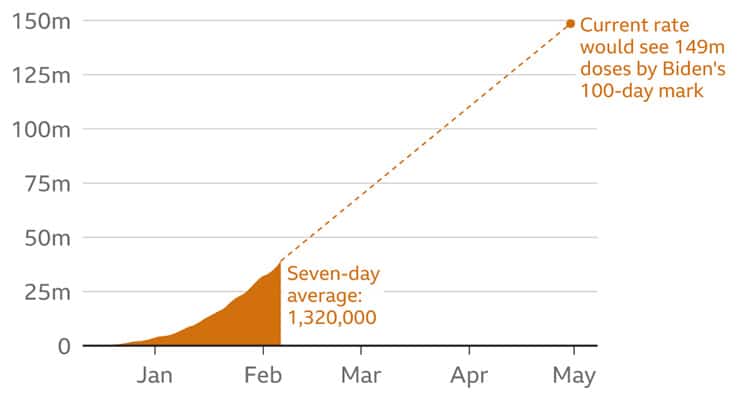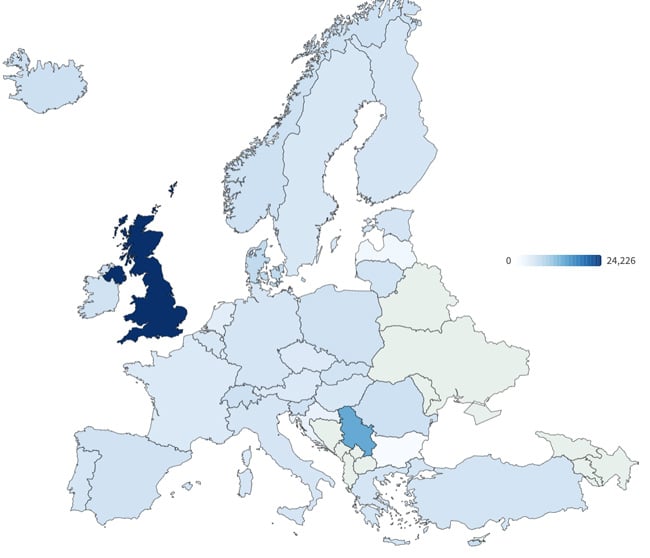The link between vaccine rollouts and the attractiveness of study destinations
- A new set of factors influencing international students’ decision-making about where to study abroad is coming into play
- How quickly a destination country is progressing towards herd immunity through vaccinations may prove to be an important determinant of student demand in 2021/22
- Higher levels of vaccinated people pave the way for economic recovery – and campuses to open to in-person learning
Over the past few years, various study abroad destinations have seen their international student numbers wax or wane in tandem with their governments’ approaches to post-study work rights and immigration policies. For example, Canada owes a good deal of its recent popularity to its welcoming immigration policies, while UK institutions saw their growth curtailed by anti-immigration policies enacted under previous administrations – and then renewed when post-study work rights were restored under the current government.
Immigration policy will remain central to national strategies aimed at attracting international students in the next months and years. But an unprecedented factor seems likely to play a significant and immediate role in affecting which countries gain or lose market share of international students this year: vaccination rates in destination countries.
This is because higher the vaccination rate in a population, the less able COVID is to circulate, and this paves the way for economies to emerge from lockdowns – and for schools and universities to re-open to in-person learning. It’s this kind of learning that international students are clamouring for. In a global IDP Connect survey conducted in October 2020, more than half (56%) of international students said they were likely to switch destinations on the basis of which destination offered in-person learning.
UK and US outpacing Canada in vaccinations
So far, of the leading English-language destinations, Canada is proceeding the most slowly. Canada has vaccinated just 2.6% of its population as of February 2021, compared with 15% in the UK and 10% in the US. (Israel is the world leader: close to 6 in 10 Israelis (59%) are now vaccinated.
Infection rates have been much higher in the UK and the US than in Canada throughout COVID, but they are coming down. Prime Minister Boris Johnson’s government is sounding increasingly confident that schools will reopen by a target date of 8 March, and in the US, Dr Anthony Fauci, the country’s top official for infectious diseases, believes that herd immunity could be well underway by this summer if more than 50% of the population is vaccinated.
Currently, the US average of daily vaccinations is more than 1.3 million vaccinations a day; President Biden’s target is to have 100 million Americans vaccinated in his first 100 days in office.

Beyond the vaccination effort, President Biden’s new foreign policy and immigration approach (a sharp departure from the policies of the previous administration) is making the US more attractive again for international students. The renewed popularity of the US could pose challenges for Canada, especially if its schools and universities can’t open as quickly or consistently as those in the UK and US for the 2021/22 academic year.
Australia will begin vaccination programme in March
At this stage of the pandemic, Australian schools and universities have been hard-hit by their government’s restrictive border policies. But there is hope on the horizon because Australia’s vaccination strategy looks solid – though it is not yet underway.
By March, the goal is to vaccinate at least 4% of the Australian population every week, and the government has announced that international students will be eligible for the vaccine – at no cost.
Federal Education Minister Alan Tudge has suggested that once the vaccine is rolled out, a recovery for the international education sector would likely take hold quickly. “Should it be effective,” Mr Tudge said in a recent radio interview, “that would make a big difference and universities could begin enrolling thousands of foreign students again.”
New Zealand is proceeding more slowly
New Zealand will follow a different approach: it may take a full year before the population of 5 million gets access to vaccines. The government says that the slower rollout is an altruistic recognition that the need for vaccines is far greater in other countries given New Zealand’s incredibly low infection rates (cases are limited to quarantine facilities). But opposition to the plan is mounting as more infectious and possibly more deadly variants are emerging in quarantine facilities and vaccine deliveries are not scheduled to reach New Zealand until late March.
In the meantime, the country's eight public universities have announced that they expect to lose NZ$200 million this year from the inability to host international students. A new partnership has been struck, however, between the universities and UK-headquartered University Consortium (NCUK) to create “a pipeline of international students to study in New Zealand when the time is right.” The arrangement will allow university students in over 30 countries to study at home through a pathway programme that leads to a New Zealand bachelor’s or master’s degree. The first intake of students is scheduled for next month.
China has greater hurdles to achieving herd immunity
For true herd immunity to be achieved, experts say that between 60%–72% of a country's residents must be vaccinated. China’s population is massive, and the drive to vaccinate nearly all 1.4 billion of its citizens is a daunting challenge. Another complication is that China’s own approved vaccine, Sinopharm, has been shown to be only 79% effective in preventing COVID.
By the end of January 2021, only about 1.6% of China's population had received their first shot of the two-dose vaccine.
European countries trail the UK
The following chart, from EuroNews shows vaccine distribution across Europe as of February 2021.

Vaccination programmes in the region are also complicated by high levels of vaccine skepticism. The Economist reports that,
“One in three French people thinks vaccines in general are unsafe—the highest figure for any country, according to the Wellcome Trust, a British charity. A whopping 46% say they would reject a COVID-19 vaccine when offered it, according to an Ipsos MORI poll. And France is not alone. In Italy, the EU’s third-largest economy, the Five Star Movement won power in part due to their avid fearmongering about vaccines … More than 40% of people in Poland and Hungary say they would reject a COVID-19 vaccine if offered.”
For additional background please see:


















